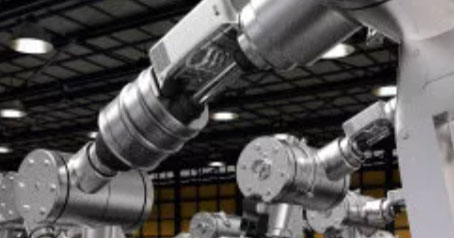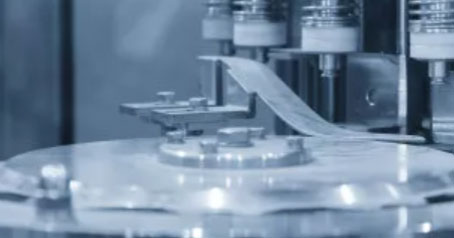JCB hydraulic pump refers to the hydraulic pump of the JCB brand. JCB is a well-known construction machinery manufacturer. Here is some information about JCB hydraulic pumps:
1. Application scenarios: JCB hydraulic pumps are widely used in all kinds of construction machinery of JCB brand, such as excavators, loaders, busy equipment at both ends, etc., to provide power for the hydraulic system of these equipment, and realize various actions of the equipment, such as digging, loading, steering, etc.
2. Product type: including many different types of hydraulic pumps, the common ones are piston pumps, gear pumps, vane pumps, etc. Different types of hydraulic pumps have different working principles and characteristics, which are suitable for different working conditions and equipment needs.
3. Performance characteristics:
High efficiency: It can efficiently convert mechanical energy into hydraulic energy, provide strong power support for construction machinery, and ensure the working efficiency of the equipment.
Reliability: After strict design and testing, it has high reliability and durability, and can operate stably for a long time in harsh working environments.
Accuracy: The flow and pressure of hydraulic oil can be precisely controlled to ensure the accurate and stable action of construction machinery.
4. Maintenance and maintenance: In order to ensure the normal operation and prolong the service life of JCB hydraulic pumps, regular maintenance and maintenance are required, including replacing hydraulic oil, cleaning filters, checking seals, etc.
5. Market supply: JCB hydraulic pumps and related accessories can be purchased through JCB official distributors or professional hydraulic pump suppliers in the market.
Judging the fault of JCB hydraulic pump can start from the following aspects:
1. Visual Inspection:
Breakage and deformation: Check whether the casing of the hydraulic pump has any physical damage such as cracking, denting, and deformation. Damage to the casing may affect the internal structure and normal operation of the hydraulic pump, such as collision may cause problems such as pump shaft deviation, loose internal parts, etc.
Oil leakage: Carefully check whether there is oil leakage at the connections, shaft seals, seals and other parts of the hydraulic pump. If an oil leak is found, it may be caused by aging or damaged seals, or loose connections. Long-term oil leakage will not only cause waste of hydraulic oil, but also affect the working performance of the hydraulic pump, and may even cause safety hazards.
2. Sound Judgment:
Abnormal noise: When the hydraulic pump is running, listen carefully to the sound it makes. The sound of the normal hydraulic pump is relatively smooth and there will be no harsh noise. If you hear unusual sounds such as sharp friction, impact, or buzzing, it may be a problem with worn parts, looseness, cavitation, or foreign objects inside the pump. For example, bearing wear can cause the shaft to rotate unevenly and produce friction sounds; If air is mixed into the hydraulic fluid, cavitation will occur, making a bubbling sound.
Sound changes: Pay attention to the changes in the sound of the hydraulic pump, such as the sudden increase in the number of voices or the changes in the frequency and rhythm of the sounds. These changes can be a sign of a faulty hydraulic pump and require further inspection.
3. Temperature Detection:
Pump body temperature: After the hydraulic pump has been running for a period of time, touch the surface of the pump body with your hands to feel the temperature. If the temperature is too high and exceeds the normal operating temperature range, it may be caused by excessive friction inside the hydraulic pump, poor oil circulation or poor heat dissipation. For example, the viscosity of the hydraulic oil is not suitable, the gap between the internal parts of the pump is too small, and the radiator is clogged.
Oil temperature change: At the same time, pay attention to the temperature change of the oil in the hydraulic system. If the oil temperature rises too quickly or too high, it will also affect the working performance of the hydraulic pump. Too high an oil temperature may reduce the viscosity of the hydraulic fluid, leading to increased leakage and accelerating the wear of internal parts of the hydraulic pump.
JCB hydraulic pumps
JCB hydraulic pump for sale
 French
French
 Portuguese
Portuguese
 Russian
Russian
 German
German
 Spanish
Spanish
 Japanese
Japanese
 Korean
Korean
 Irish
Irish
 Greek
Greek
 Turkish
Turkish
 Italian
Italian
 Danish
Danish
 Romanian
Romanian
 Indonesian
Indonesian
 Czech
Czech
 Afrikaans
Afrikaans
 Swedish
Swedish
 Polish
Polish
 Basque
Basque
 Catalan
Catalan
 Esperanto
Esperanto
 Hindi
Hindi
 Lao
Lao
 Albanian
Albanian
 Amharic
Amharic
 Armenian
Armenian
 Azerbaijani
Azerbaijani
 Belarusian
Belarusian
 Bengali
Bengali
 Bosnian
Bosnian
 Bulgarian
Bulgarian
 Cebuano
Cebuano
 Chichewa
Chichewa
 Corsican
Corsican
 Croatian
Croatian
 Dutch
Dutch
 Estonian
Estonian
 Filipino
Filipino
 Finnish
Finnish
 Frisian
Frisian
 Galician
Galician
 Georgian
Georgian
 Gujarati
Gujarati
 Haitian
Haitian
 Hausa
Hausa
 Hawaiian
Hawaiian
 Hebrew
Hebrew
 Hmong
Hmong
 Hungarian
Hungarian
 Icelandic
Icelandic
 Igbo
Igbo
 Javanese
Javanese
 Kannada
Kannada
 Kazakh
Kazakh
 Khmer
Khmer
 Kurdish
Kurdish
 Kyrgyz
Kyrgyz
 Latin
Latin
 Latvian
Latvian
 Lithuanian
Lithuanian
 Luxembourg
Luxembourg
 Macedoniar
Macedoniar
 Malagasy
Malagasy
 Malay
Malay
 Malayalam
Malayalam
 Maltese
Maltese
 Maori
Maori
 Marathi
Marathi
 Mongolian
Mongolian
 Burmese
Burmese
 Nepali
Nepali
 Norwegian
Norwegian
 Pashto
Pashto
 Persian
Persian
 Punjabi
Punjabi
 Serbian
Serbian
 Sesotho
Sesotho
 Sinhala
Sinhala
 Slovak
Slovak
 Slovenian
Slovenian
 Somali
Somali
 Samoan
Samoan
 Scots Gaelic
Scots Gaelic
 Shona
Shona
 Sindhi
Sindhi
 Sundanese
Sundanese
 Swahili
Swahili
 Tajik
Tajik
 Tamil
Tamil
 Telugu
Telugu
 Thai
Thai
 Ukrainian
Ukrainian
 Urdu
Urdu
 Uzbek
Uzbek
 Vietnamese
Vietnamese
 Welsh
Welsh
 Xhosa
Xhosa
 Yiddish
Yiddish
 Yoruba
Yoruba
 Zulu
Zulu







